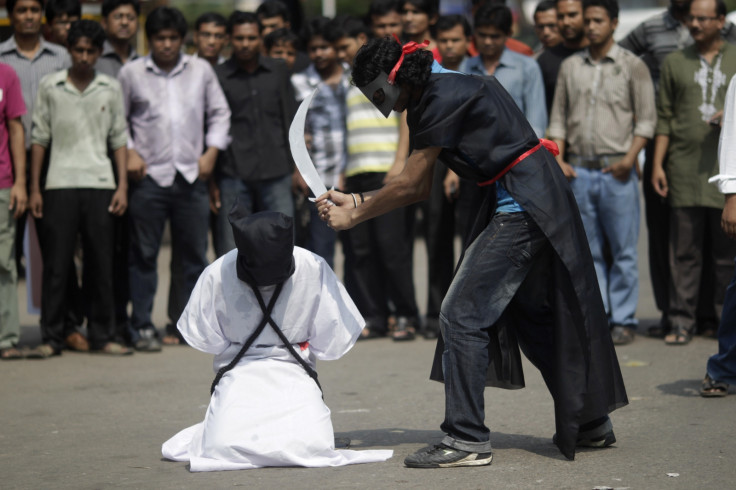Saudi Arabia averages one execution every two days as foreign nationals suffer disproportionately

Saudi Arabia has averaged one execution every two days, mostly by beheading, according to a report published by Amnesty International on 25 August. At least 175 people have been executed in the space of a year while 2,200 people – almost half of whom were foreign nationals – have been killed by the Kingdom between January 1985 and June 2015.
In the first half of this year alone, 102 people were executed, eclipsing the 90 capital punishments that took place 2014. The report states that: "Saudi Arabia also continues to sentence to death and execute individuals for crimes committed when they were below 18 years of age," and also uses the death penalty against those with mental disabilities.
The report notes that the country experienced a sudden spike in execution rates in August last year and that persisted under the reign of King Salman who succeeded his brother in January this year. Of the total recorded executions, 48.5% were against foreign nationals (the majority of whom are migrant workers) who suffer disproportionately as they have no knowledge of Arabic, the language in which they are questioned while in detention and in which trial proceedings are carried out.
Saudi Arabia's justice system lacks a criminal code, giving judges wide powers of interpretation which leads to vast discrepancies from sentences imposed on defendants in similar cases. Amnesty states that: "The absence of a rule to abide by judicial precedent adds in fact a further layer of arbitrariness to sentences and punishments issued by different judges for the same type of offences across cases."
"Saudi Arabia's faulty justice system facilitates judicial executions on a mass scale," Said Boumedouha, acting director of Amnesty's Middle East and North Africa program, said in a statement.
The country follows a strict interpretation of Islamic law, or Sharia and applies the death penalty to crimes which are not considered the "most serious" under the International Covenant on Civil and Political Rights. These include practising witchcraft, apostasy, adultery and drug offences.
According to the report, significant concerns surround "confessions" extracted under torture, duress or coercion which are often "the sole evidence in cases of those sentenced to death". The effectiveness of torture is a hotly contested topic, with many intelligence experts claiming that if people are subjected to enough pain, they will say anything to make it stop – even if for a short while.
© Copyright IBTimes 2025. All rights reserved.




















